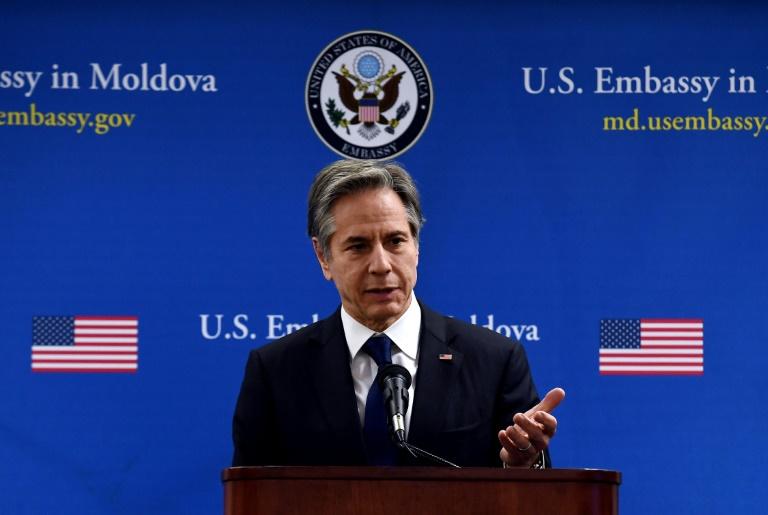
US Secretary of State Antony Blinken on Sunday dismissed as “irrelevant” Russian demands for guarantees that new sanctions linked to Ukraine will not affect Moscow’s rights under a reworked Iran nuclear deal.
With the parties to the Iran agreement, which the US abandoned in 2018, now seemingly close to a new accord, Blinken rejected fresh demands voiced Saturday by Russian Foreign Minister Sergei Lavrov.
The sanctions on Russia over its invasion of Ukraine “have nothing to do with the Iran nuclear deal,” Blinken said on CBS talk show “Face the Nation.”
They “just are not in any way linked together, so I think that’s irrelevant,” he said, speaking from Moldova, a small country on Ukraine’s southwest border.
Blinken said it was not only in America’s interest but Russia’s as well that Iran not be able “to have a nuclear weapon or the capacity to produce a weapon on very, very short order.”
The latest Russian reservations, coming amid the intense crisis over Ukraine, threaten hopes that an Iran agreement could be wrapped up quickly.
Iran and the United Nations nuclear watchdog had announced early Saturday that they agreed on an approach for resolving issues crucial to reviving the country’s 2015 nuclear accord with world powers.
Rafael Grossi, chief of the International Atomic Energy Agency (IAEA), said in Vienna that while the UN agency and Iran had yet to resolve “a number of important matters,” they had now “decided to try a practical, pragmatic approach” to overcome them.
However, Grossi said there was “no artificial deadline.”
Britain, one of the parties to the parallel talks on the nuclear accord in Vienna, indicated Friday that an agreement was close.
But Lavrov said Saturday that Moscow, itself slapped with severe sanctions over its invasion of Ukraine, needed guarantees before backing the nuclear deal.
He said Russia wanted written guarantees from the United States that Ukraine-related sanctions “will not in any way harm our rights to free, fully fledged trade and economic and investment cooperation, military-technical cooperation with Iran.”
Russia is party to the talks in Vienna along with Britain, China, France and Germany. The United States is participating indirectly.
bbk/mlm




